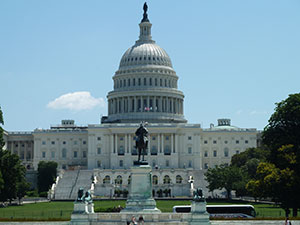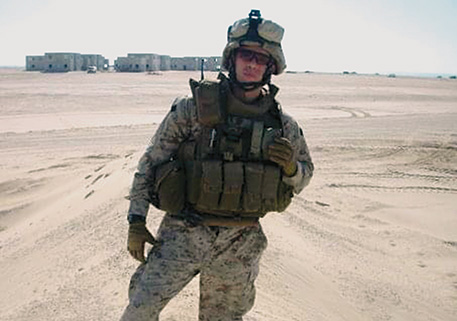 Updating the VA burn pit registry, Global War on Terrorism Memorial and employment program for transitioning veterans included in annual defense authorization bill
Updating the VA burn pit registry, Global War on Terrorism Memorial and employment program for transitioning veterans included in annual defense authorization bill
After Congress enacted sweeping legislation late last year, veterans can expect the expansion of the Department of Veterans Affairs’ burn pit registry to two additional countries, a new memorial dedicated to those who served in conflicts since 9/11 and the restart of a program aimed at getting transitioning veterans teaching in classrooms across America.
The National Defense Authorization Act (NDAA) for Fiscal Year 2022, signed into law on Dec. 27, outlines $768 billion in spending and sets policy for the Pentagon. The legislation also contains multiple provisions that will directly affect veterans.
While the wars in Afghanistan and Iraq are over, the long-lasting adverse health effects from burn pits will continue to manifest for decades to come. The new law expands the VA’s Airborne Hazards and Open Burn Pit Registry to include pits operated in Egypt and Syria.
Veterans are eligible to participate in the registry if they deployed to various countries in the Middle East after Aug. 2, 1990, or Afghanistan or Djibouti on or after Sept. 11, 2001. Veterans who served in operations Desert Shield and Desert Storm, Iraqi Freedom, Enduring Freedom and New Dawn are already eligible.
In 2008, DAV was the first major veterans organization to bring up in the media the issue of the toxic and ubiquitous practice of open-air burn pits. DAV also initiated a pilot program for the burn pit registry, signed into law in 2014, and continues its advocacy on this critical veterans issue.
Another NDAA provision with post-9/11 veterans in mind is the authorization of the National Global War on Terrorism Memorial. The memorial will be located on the National Mall in Washington, D.C., to honor those who have served in the ongoing international military campaigns since 9/11.
Additionally, the Pentagon is now required under the NDAA to relaunch its Troops to Teachers program. Since 1993, the program has helped guide transitioning service members into meaningful civilian employment in education. The program briefly ended in October of last year but will now be extended into 2025.
Also included in the annual defense authorization bill is a requirement for the Defense Department to conduct a study on the prevalence of breast cancer among troops. The provision directs the Pentagon to assess current mammography screening policies, including for women veterans who served in proximity to burn pits, which could aid in the earlier detection of the disease for women veterans in the future.
“Inclusion of these veterans provisions in the annual defense authorization bill was a great way to end 2021,” said National Legislative Director Joy Ilem. “As we look at the year ahead, DAV will continue to advocate for those who have bravely worn our nation’s uniform and will continue advancing additional key veterans legislation during the second session of the 117th Congress.”
Find updates to other major veteran legislation by joining DAV CAN (Commander’s Action Network) at DAVCAN.org.






